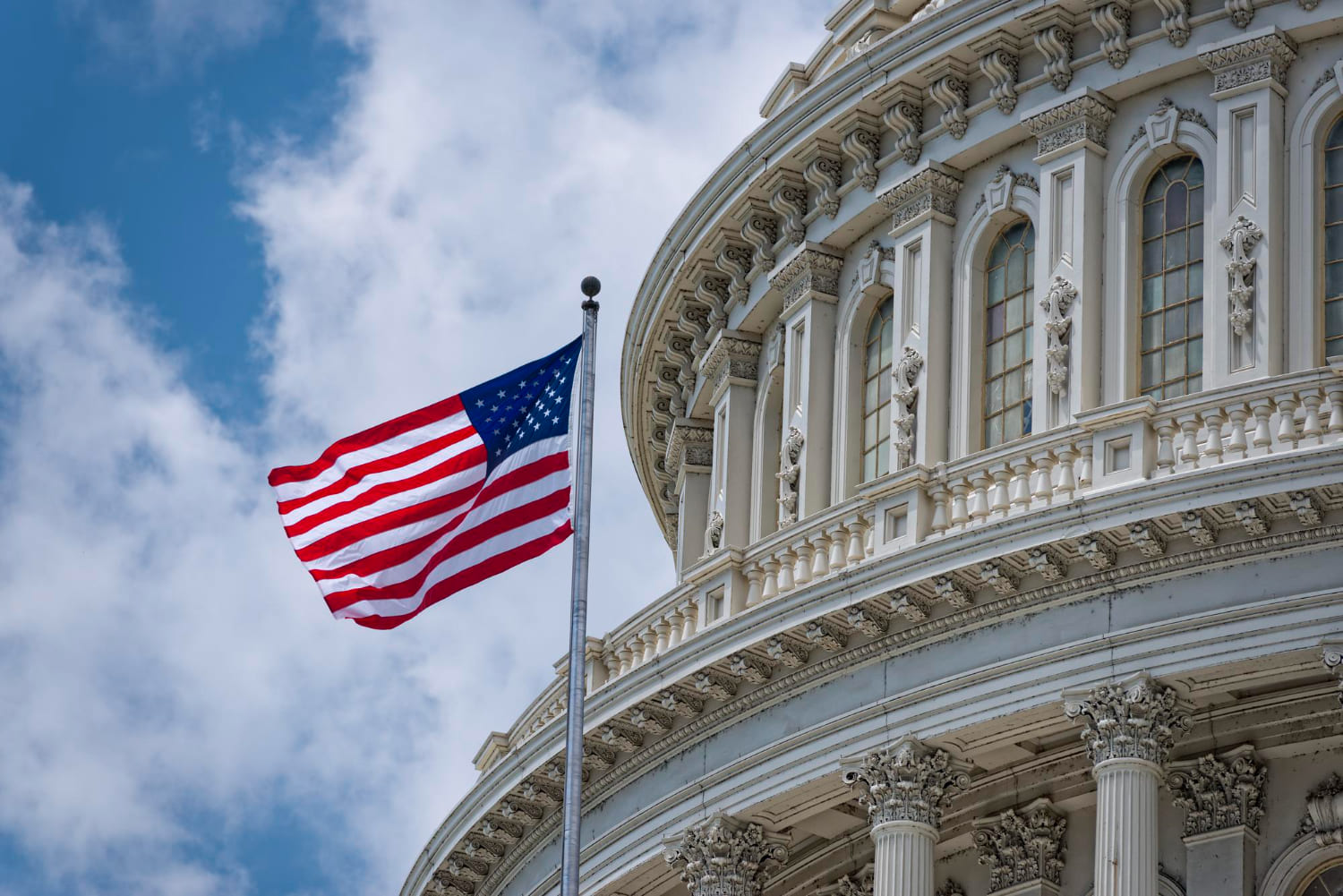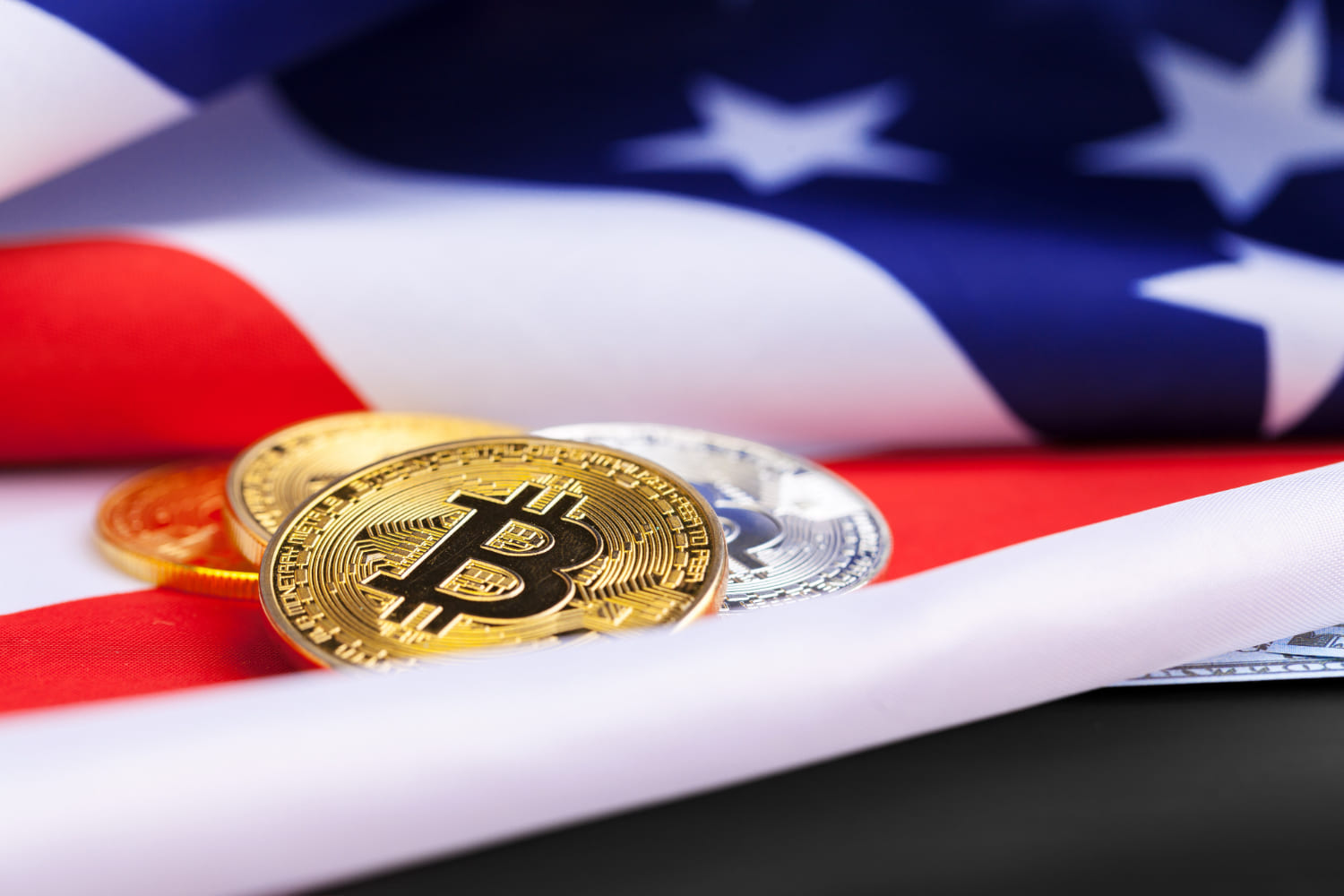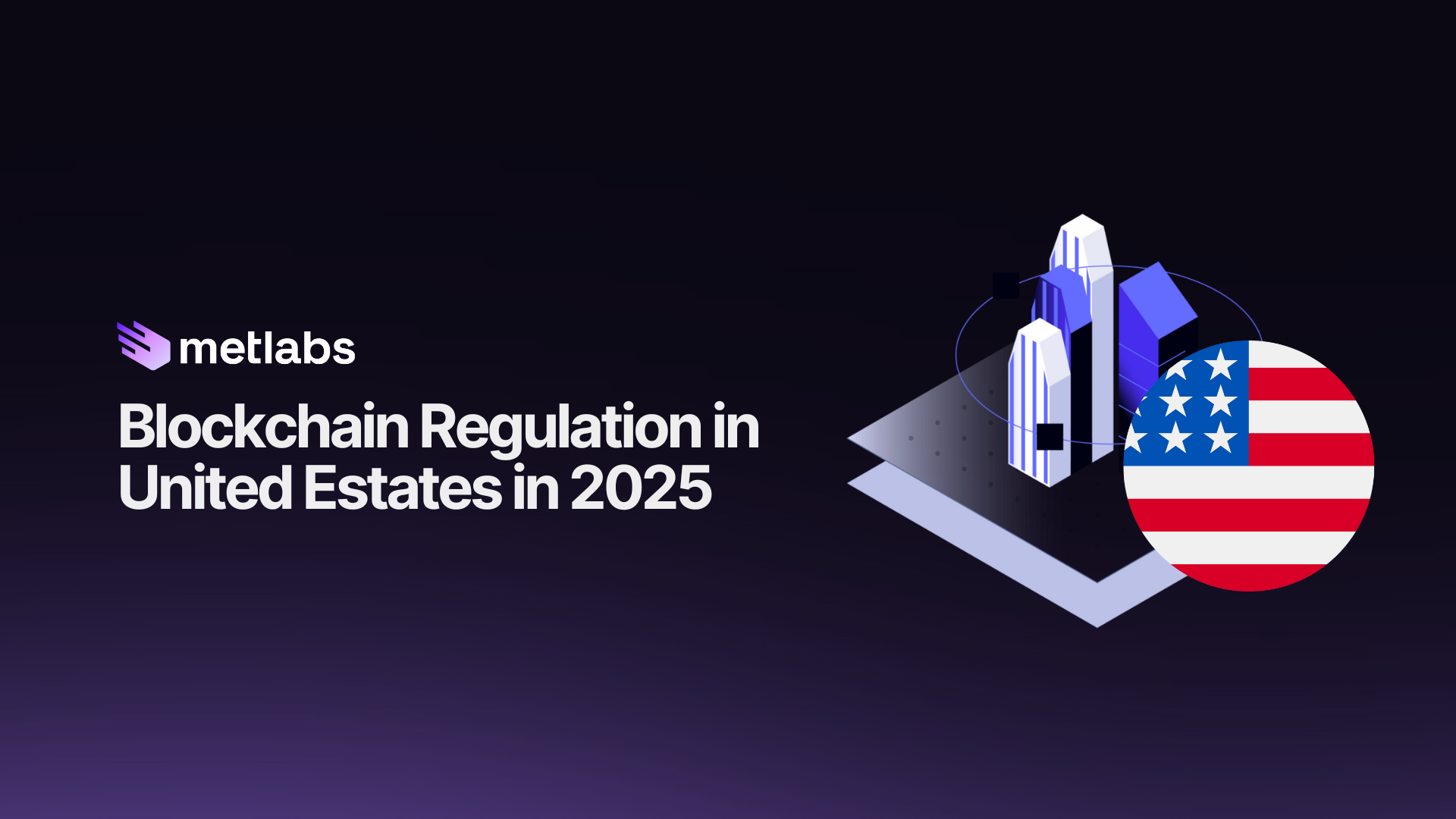The adoption of blockchain technology and asset tokenization is advancing at a rapid pace, but the real engine driving its global development is the existence of a clear, consistent and innovation-friendly legal framework.
Some countries have already established themselves as regulatory benchmarks, establishing specific rules for cryptoassets, DLT infrastructures and the issuance of legally backed tokens. In this article we show you relevant information about blockchain regulation in the United States, which you can use as a guide if you are looking to operate internationally or evaluate different strategic locations.

What is the crypto regulation in the United States?
The United States is one of the most relevant markets for blockchain and digital assets, although its legal framework is characterized by fragmented regulation. There is no single federal law like the European MiCA Regulation. Instead, various federal and state agencies oversee different aspects: the SEC regulates security tokens, the CFTC regulates commodities, and FinCEN regulates AML obligations. In addition, certain states have their own regulations, such as New York with the BitLicense.
2019: SEC and FinCEN guidance on digital assets.
2021: First bitcoin futures ETF approvals.
2022: Presidential executive order on crypto policy.
2023: Proposed legislation on digital asset market structure.
2024: Legislative developments on stablecoins and reinforcement of AML frameworks.
2025: Approval in the Senate of the GENIUS Act for stablecoins.
Current legislation for virtual assets in the U.S.
Securities Act of 1933 and Securities Exchange Act of 1934
These landmark laws form the basis of securities regulation in the United States and apply fully to cryptoassets that are considered securities. The SEC has made it clear that many digital tokens, including security tokens and certain ICO issuances, must comply with these laws. This involves registration, transparency, risk disclosure and investor protection requirements.
Commodity Exchange Act (CEA)
The CFTC oversees cryptoassets classified as commodities, such as bitcoin and ether. Under the CEA, futures, options and swaps markets on these assets are regulated. Platforms offering derivatives on cryptoassets must register with the CFTC and comply with strict transparency, governance and consumer protection requirements.
Bank Secrecy Act (BSA)
The Bank Secrecy Act is the key anti-money laundering (AML) regulation in the United States. FinCEN requires virtual asset service providers (VASPs), such as exchanges or custodians, to register as MSBs (Money Services Business), implement robust AML programs, apply KYC controls and report suspicious transactions.
State Money Transmitter Laws
Each state in the U.S. can impose its own money transmission laws. Some, such as New York, require specific licenses such as BitLicense to legally operate cryptoassets. This forces crypto companies to comply with additional state licensing, transparency and solvency requirements on top of federal requirements.
Clarity Act (2025)
Seeks to establish a clear federal framework for digital asset markets. It aims to grant the CFTC exclusive authority over “digital commodities” and create a process for certain digital assets to transit from SEC jurisdiction to the CFTC, clarify the status of tokens, stablecoins and DeFi platforms, and introduce uniform rules nationwide.
Genius Act (2025)
Provides an innovative regulatory framework for the blockchain industry. It includes provisions on taxation of transactions with digital assets, regulating only fiat-backed payment stablecoins, excluding algorithmic ones, legal clarity for asset tokenization and guidelines for the integration of DeFi solutions into traditional financial systems.
What is the Genius Act?
The GENIUS Act is a landmark law passed in the United States that establishes the first comprehensive federal framework for the regulation of stablecoins, particularly those linked to the US dollar. This legislation seeks to regulate the issuance and oversight of these digital assets used as a means of payment, with an emphasis on transparency, security and consumer protection.
Its main features include:
- Only authorized entities, such as banks or regulated issuers, may issue stablecoins.
- Stablecoins are required to be backed 1:1 by safe and liquid assets (cash, bank deposits or Treasury bonds).
- Mandatory monthly audits with public reporting to ensure transparency.
- A mixed federal and state regulatory framework, allowing issuers to opt for one or the other if certain conditions are met.
- Standards for the custody and segregation of user assets.
- Prohibited from being considered securities or financial products regulated by the SEC or CFTC.
- Establishes clear mechanisms for the approval, supervision and appeal of issuers.
- Anti-money laundering and anti-terrorist financing measures are included.
- Priority of reimbursement for holders in case of bankruptcy.
The GENIUS Act represents the strongest regulatory response by the U.S. Congress to date to oversee these types of digital assets and encourage their safe use as a means of payment, in addition to protecting consumers and promoting the stability of the digital financial marketplace.

Regulation of asset tokenization in the U.S.
Asset tokenization in the US takes place within an evolving legal framework characterized by regulatory fragmentation. Security tokens are governed by the Securities Act and require SEC authorization for issuance, trading and custody. Platforms offering services on these tokens must comply with strict transparency, governance and compliance requirements.
Tokenization of non-financial assets is based on contract law and state legislations, which recognize the legal validity of blockchain records. Several states, such as Wyoming, Colorado and Tennessee, have passed pioneering frameworks that grant legal protection to tokenized assets and their transactions. At the same time, ongoing legislative initiatives at the federal level, such as the Clarity Act and the Genius Act, are moving toward creating a uniform framework for stablecoins, RWA tokens and DeFi. As these reforms take hold, companies must navigate a complex regulatory environment that combines federal, state and industry standards.
In addition, entities such as the SEC and CFTC are stepping up oversight of tokenization-related activities, especially in secondary markets and in the custody of digital assets. The United States remains a key market for innovation in tokenization, but requires a high level of compliance and constant legal adaptation.
Regulatory agencies and authorities for digital assets in the U.S.
Securities and Exchange Commission (SEC)
The SEC is the authority that oversees cryptoassets considered securities, including many tokens issued in ICOs and security tokens. It requires registration, full disclosure and compliance with anti-fraud rules. It also regulates secondary trading platforms for these tokens and acts against DeFi projects that fit the definition of securities under current regulations.
Commodity Futures Trading Commission (CFTC)
The CFTC oversees cryptoassets classified as commodities, such as bitcoin and ether. It regulates futures and derivatives markets on these assets, and acts against fraud in spot markets. Its role is being redefined in 2025 within the Digital Asset Market Structure Bill to clarify powers over hybrid assets and new DeFi platforms.
Financial Crimes Enforcement Network (FinCEN)
FinCEN is the authority that imposes AML/CFT regulations on digital asset service providers (VASPs). It requires exchanges, custodians and other players to register as MSBs, implement robust AML/KYC controls and report suspicious transactions. It also issues guidelines on emerging risks and criminal typologies linked to the use of cryptoassets.
Office of the Comptroller of the Currency (OCC)
The OCC regulates domestic banks offering services related to digital assets. It has issued guidelines on cryptoasset custody and issuance of deposit-backed stablecoins. It oversees the integration of blockchain solutions into traditional banking, ensuring compatibility with prudential and risk management standards.
State regulators
Each state can impose its own regulations on money transmission and digital asset trading. Jurisdictions such as New York require specific licenses, such as BitLicense, with additional capital, cybersecurity and compliance requirements. This regulatory patchwork forces crypto companies to manage compliance differently in each state.
Crypto Task Forces (NCET, IRS-CI, Joint Task Forces)
The Department of Justice(DOJ), through its National Cryptocurrency Enforcement Team (NCET), leads the prosecution of crimes related to digital assets. In addition, there are joint task forces (NY, California, Florida), in coordination with IRS-CI and FinCEN, that act against money laundering, tax evasion and other crimes related to cryptoassets.
What licenses and requirements are needed to trade cryptoassets in the United States?
MSB registration with FinCEN
Companies that offer exchange, custody or transmission of digital assets must register as a Money Services Business (MSB) with FinCEN. This registration mandates the implementation of AML/KYC programs, internal compliance controls and suspicious activity reporting. It is a basic requirement to operate legally at the federal level.
State licenses (Money Transmitter License)
Numerous states require specific licenses for money transmission. New York, with its BitLicense, is one of the most restrictive examples. These licenses require companies to meet capital, cybersecurity, governance and consumer protection requirements, and must be obtained on a state-by-state basis.
SEC Registration and Compliance
If the tokens issued or traded are considered securities, compliance with SEC regulations is mandatory. This includes issuer registration, or the use of valid exemptions, and authorization as an ATS or exchange for platforms that offer secondary trading of these assets.
CFTC requirements and registration
Platforms offering derivatives on cryptoassets must register as an FCM, SEF or other applicable category with the CFTC. They must also comply with capital requirements, risk controls, auditing and anti-fraud rules. This requirement is key for exchanges offering leveraged products.
AML/KYC Compliance
All crypto companies in the United States must comply with AML/KYC regulations derived from the Bank Secrecy Act and FinCEN guidelines. This includes rigorous processes for customer identification, transaction monitoring and suspicious activity reporting. It is an essential obligation for any company that wants to operate in compliance.

Types of tokens and their regulation in the U.S.
Securities (STO)
Security tokens are subject to the federal securities laws, principally the Securities Act of 1933 and the Securities Exchange Act of 1934. Their issuance, custody and trading require registration with the SEC or reliance on a valid exemption. Issuers must comply with disclosure, transparency and investor protection requirements. Trading platforms require authorization as an ATS or exchange.
Utility Tokens
The SEC analyzes on a case-by-case basis whether a utility token constitutes a security under the Howey test. In many recent cases, the SEC has considered that utility tokens offered with expectations of appreciation or under financial marketing may be securities. Tokens with purely functional use in a decentralized network are less exposed to regulation as securities, but not exempt from AML/KYC obligations.
Stablecoins
USD or liquid asset-backed stablecoins are federally regulated following the passage of the GENIUS Act in 2025, which establishes requirements for issuers, including audited reserves, transparency and AML/KYC compliance. The issuance of stablecoins by banks is regulated by the OCC. Algorithmic stablecoins face increased regulatory risks and enhanced oversight.
CBDCs
In 2024, a federal executive order prohibited the development, issuance and use of a CBDC (Central Bank Digital Currency) in the United States. Therefore, as of today, there are no plans and no official CBDC or authorized pilot projects. Any possible change would require the express repeal of this ban by Congress.
NFTs
NFTs do not have a specific federal regulation. Their treatment depends on their nature: purely artistic or collectible NFTs are generally not considered securities. However, if an NFT incorporates investment elements, future cash flow rights or appreciation expectations, it may qualify as a security and come under SEC supervision.
DAOs and smart contracts
DAOs and smart contracts are not specifically regulated at the federal level. However, the SEC has acted against DAOs that operated as securities issuing organizations without registration. States such as Wyoming and Utah have passed legal frameworks for the recognition of DAOs as legal entities, although DAOs offering financial products or issuing securities are still subject to federal regulation (SEC, CFTC).
Do you want to develop a blockchain project in the United States?
At Metlabs we help companies like yours and offer comprehensive support in the development of blockchain projects and tokenization of assets such as real estate, carbon credits, commodities, intellectual property, financial instruments, franchises and more, fully aligned with U.S. blockchain regulation and international regulatory standards.
Contact us at and find out how we can help you meeting all your business model needs, from technical validation and structuring to design, development and implementation of custom blockchain solutions, ready to scale from day one.

Frequently Asked Questions (FAQ)
Can tokens be issued in the United States without SEC registration?
In certain cases yes, if they qualify for valid exemptions (Reg D, Reg A+, Reg S). However, most issues that involve raising public investment require registration. A prior legal analysis is essential.
Is it necessary to register as an MSB to operate an exchange in the United States?
Yes. Any exchange that trades cryptoassets must register as a Money Services Business (MSB) with FinCEN and comply with AML/KYC regulations, in addition to obtaining the appropriate state licenses.
What regulation applies to NFTs in the United States in 2025?
There is no specific federal regulation for NFTs. However, if an NFT confers economic rights, revenue sharing or profitability expectations, it may qualify as a security by the SEC. Projects must analyze their legal qualification on a case-by-case basis.
Can a DAO be operated legally in the United States?
Yes, but it needs to be properly structured. States such as Wyoming and Utah have passed legal frameworks for the recognition of DAOs as legal entities. However, DAOs offering financial products or issuing securities are still subject to federal regulation (SEC, CFTC).
What is BitLicense and in which states is it required?
The BitLicense is a New York-specific license that regulates activities with virtual assets. It is mandatory for any company dealing with New York residents. Other states require Money Transmitter Licenses, but the BitLicense is the most well-known and restrictive in the US.
How to register a token with the SEC to comply with U.S. regulations?
To register a token as a security with the SEC, it is necessary to file a Form S-1 (or other applicable form), comply with full disclosure, prospectus, governance controls and financial transparency requirements. Alternatively, exemptions such as Reg D, Reg A+ or Reg S are available.



